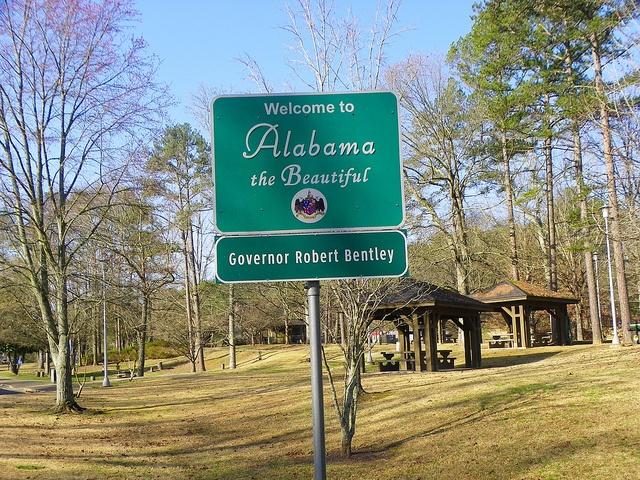
A small town called Eight Mile in Alabama experienced a mercaptan spill at a Mobile Gas as facility eight years ago. Mercaptan is a chemical that is added so a gas leak can be detected, as natural gas is odorless and colorless. It smells like rotten eggs. Some stakeholders, like Columbia Gas of Massachusetts, claim it is a “harmless, nontoxic” chemical. But the citizens of Eight Mile aren’t likely to agree.
Eight Mile is an unincorporated town of around 13,000 named for its distance from the city of Mobile. It now finds itself connected to a far larger city some 2,000 miles away: Sempra Energy owns Mobile Gas, as well as the Southern California Gas Co., which was responsible for the natural gas leak in Porter Ranch, California, in January 2016.
The Eight Mile event occurred as a result of a lightning strike that caused mercaptan to leak from a storage tank. In 2012, Mobile Gas collected samples from a groundwater spring at a beaver pond and found it contained mercaptan. Flash forward four years, and residents continue to complain about the smell. As Eight Mile resident Geraldine Harper told DeSmogBlog in August, “For years we have been told there is not a problem anymore, though the smell of gas never really goes away and I’m sure breathing that stuff is making my health worse.”
Back in July, Harper and over 200 others attended a public meeting hosted by the We Matter Eight Mile Community Association. At the meeting, environmental scientist and community advocate Wilma Subra “confirmed what many feared -- their air is getting worse, not better,” DeSmog reported.
As much as 6,000 pounds of mercaptan might have leaked into the area’s groundwater, according to a deposition by an employee of Mobile Gas, which a lawyer suing the company provided to AL.com. That is a tremendous amount. And it explains why a 2012 Alabama Department of Public Health health survey of residents near the spill found that a third sought out treatment for “symptoms attributed to the odor (mercaptan).”
The majority of residents reported that for over 14 out of 30 days, during the time of the survey, they were “physically and mentally unhealthy, in addition to being unable to do normal activities.” The residents complained of nasal congestion, dyspnea, cough, wheezing, loss of appetite, eye irritations, headache, dizziness, agitated behavior, difficulty concentrating, and worsening hypertension.
Affected residents were evacuated after the Porter Ranch spill. But Eight Mile residents are still dealing with the effects of their spill eight years later. A Los Angeles Times report contrasts the response to the two leaks. While members of Porter Ranch, who are predominately white, were evacuated and relocated right after the leak, the mostly African-American residents of Eight Mile “have been largely ignored, stuck for eight years with the stifling rotten egg stench,” wrote LA Times reporter Ivan Penn.
It’s the classic tale of two cities -- or in this case, a tale of two leaks. And it exposes not only lax corporate responsibility and government response, but also the underbelly of America: the classism and racism that everyone would rather keep hidden.
Part of the problem for Eight Mile residents is that mercaptan isn’t classified on the EPA’s toxic substance list or on the Occupational Safety and Health Administration (OSHA) list of highly hazardous chemicals, as Mobile Gas mentioned in a section on its website devoted to the Eight Mile leak. President Barack Obama signed a bill into law in June that modernized the Toxic Substances Control Act, which makes it possible for the EPA to conduct studies on mercaptan so it can be added to the list. A Change.org petition asks the EPA “to do what is necessary” to put mercaptan on the list.
What is crystal clear from the Eight Mile leak is that Americans deserve better than being exposed to a substance for eight years that causes chronic health problems.
Image credit: Flickr/J Stephen Conn

Gina-Marie is a freelance writer and journalist armed with a degree in journalism, and a passion for social justice, including the environment and sustainability. She writes for various websites, and has made the 75+ Environmentalists to Follow list by Mashable.com.














